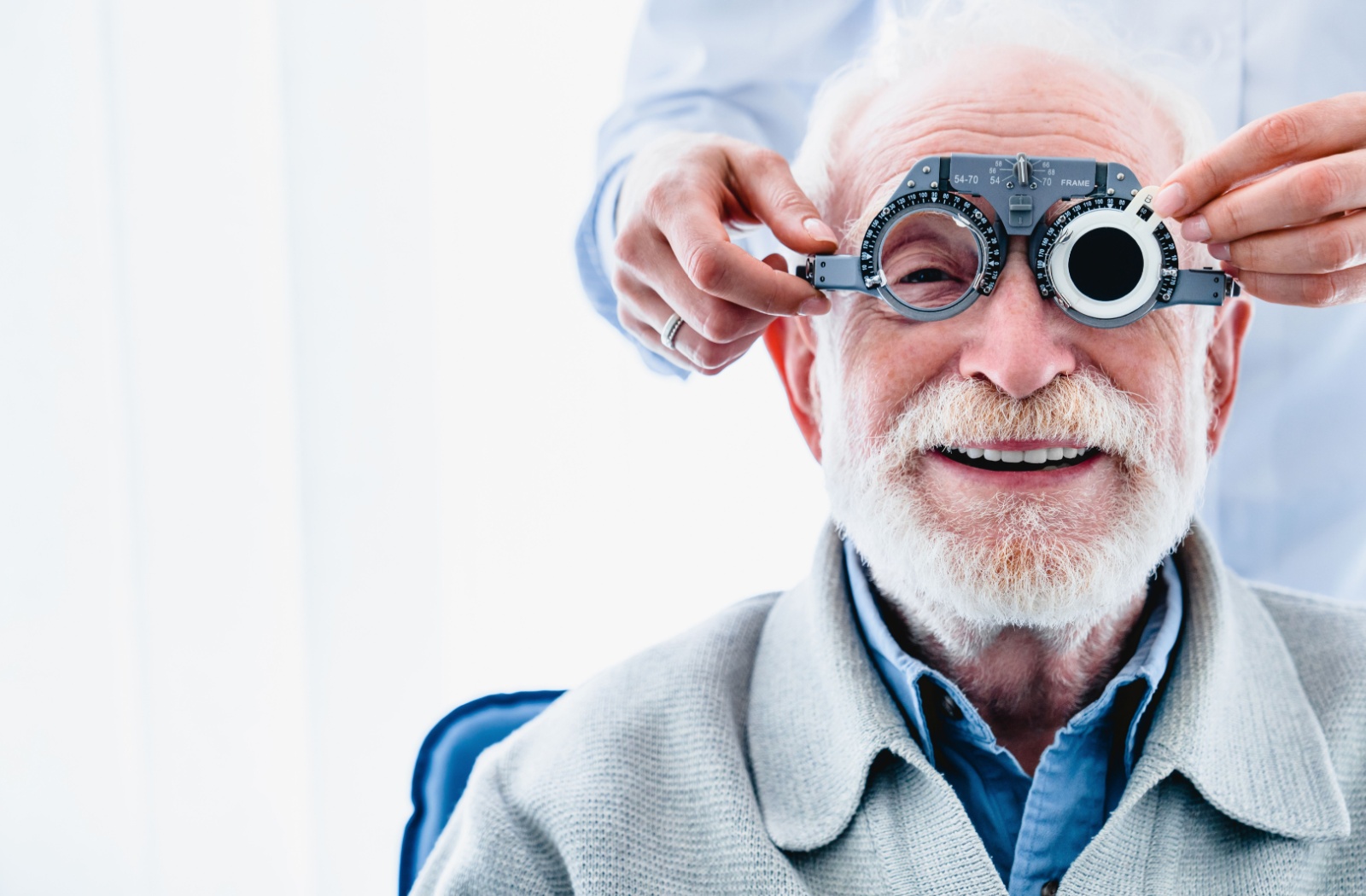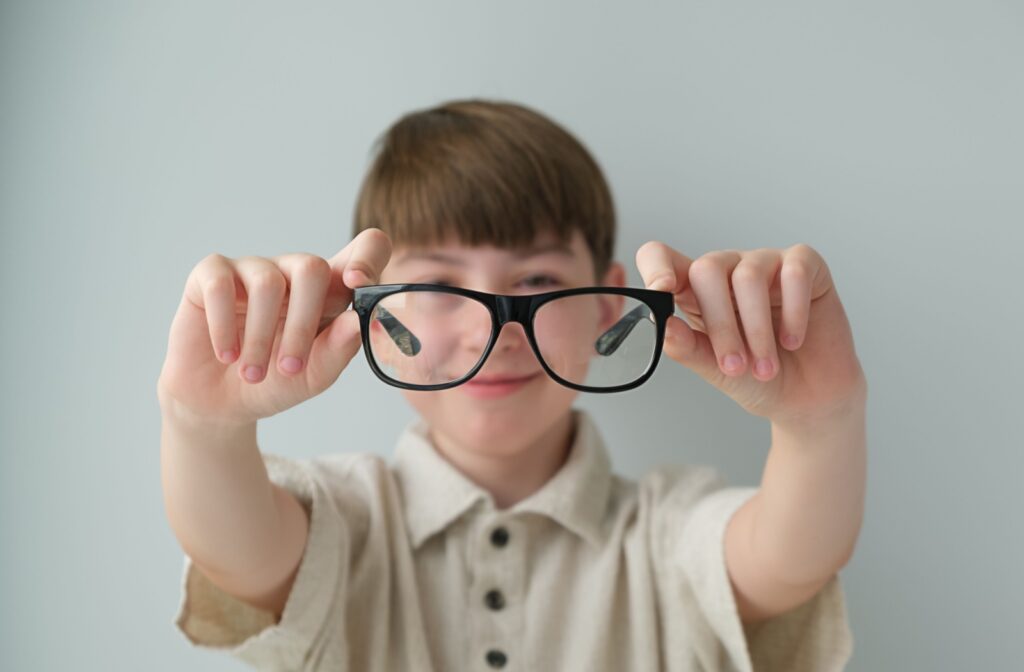If you or a loved one has myopia (nearsightedness), it’s natural to wonder whether your vision might improve as you get older. After all, many aspects of our health evolve with age—could eyesight be one of them?
The short answer is: Myopia typically does not improve with age. Instead, it stabilizes or may continue to progress without proper management.
At Discover Eyecare, we’re dedicated to helping you understand your vision and find solutions that support long-term eye health. Whether you’re looking for comprehensive eye exams or myopia management options, our team is here to help.
What Is Myopia?
Myopia is a common refractive error where distant objects appear blurry, but close-up vision remains clear. This happens when the eye grows too long or the cornea curves too steeply, causing light to focus in front of the retina rather than directly on it.
Factors that contribute to the development of myopia include:
- Genetics: A family history of myopia increases the likelihood of developing the condition.
- Lifestyle: Extended periods of close-up work, such as reading or screen time, and limited outdoor activities can heighten the risk.
Myopia is typically diagnosed through a thorough eye exam and is commonly managed with corrective lenses, specialty contact lenses, or myopia control treatments.

Does Myopia Stabilize or Improve with Age?
While myopia tends to stabilize in adulthood, particularly after the eye’s major growth phases slow down, it does not typically improve on its own. Myopia progression may vary during different stages of life.
- Childhood and teenage years: Myopia often progresses rapidly.
- Early adulthood (20s to early 30s): Progression usually slows or stabilizes.
- Later adulthood: Other vision changes, like presbyopia (age-related farsightedness), may occur but do not “reverse” myopia.
Some adults might notice changes in their prescription, but these are usually related to other age-related factors rather than an improvement in myopia itself. This is why regular eye exams and proactive myopia management are crucial at every stage of life.
How Lifestyle Choices Affect Myopia
Modern life is filled with screen time, close-up work, and often, little time outdoors—all factors that can contribute to the progression of myopia, especially in children and teens.
Here are a few lifestyle habits that can help slow myopia’s progression:
- Follow the 20-20-20 rule: Every 20 minutes, look at something 20 feet away for at least 20 seconds.
- Encourage outdoor play: Studies show that spending more time outside—at least 2 hours per day—can slow the progression of myopia in children.
- Limit continuous near work: Encourage frequent breaks during homework or device use.
- Maintain good lighting: Poor lighting during reading or screen use can cause additional eye strain.
These simple daily habits can make a measurable difference in preserving your or your child’s vision over time.
Your Options for Managing Myopia
Even though myopia may not improve with age, effective management strategies can help slow its progression and preserve eye health.
Here are some common myopia management solutions:
Atropine Eye Drops
Low-dose atropine eye drops are often prescribed for children to help slow the elongation of the eyeball. These drops do not correct blurry vision but work to control the worsening of myopia over time.
MiSight 1 Day Contact Lenses
MiSight contact lenses are designed specifically for children with myopia. These soft, daily disposable lenses help focus light correctly on the retina, which can slow eye growth and myopia progression while providing clear vision throughout the day.
Glasses with Myopia Control Lenses
Specialty glasses, such as those with defocus-incorporated multiple segments (DIMS) technology, are another option for managing childhood myopia, offering both vision correction and myopia control benefits.
Why Early Intervention Matters
Starting myopia management early can have long-lasting benefits. Myopia can progress to high myopia, which increases the risk of serious eye health issues later in life, including:
By addressing myopia early, you can help protect against these risks and promote healthier vision into adulthood and beyond.
Can Myopia Get Worse in Older Adults?
Interestingly, some adults experience changes in their vision later in life, but these are usually related to other age-related eye conditions, not myopia itself.
2 common vision changes for older adults include:
- Presbyopia: Around age 40, most people develop presbyopia, making it harder to see close-up objects.
- Cataracts: Developing cataracts can cause a “second sight,” where close-up vision temporarily improves, but this is not a true reversal of myopia and usually requires cataract surgery.
Continued regular eye exams are essential for monitoring vision changes and maintaining eye health throughout life.
Protect Your Vision with Discover Eyecare
Although myopia doesn’t improve naturally with age, proactive care and modern treatments can slow its progression and protect long-term eye health.
We’re committed to providing modern myopia control strategies for patients of all ages. Whether you’re seeking solutions for yourself or your child, our experienced team is here to help you see clearly today and in the years ahead.
Book an appointment with Discover Eyecare today and take the first step toward preserving healthy vision.



